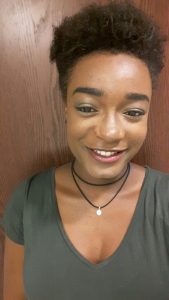
Discussing race nowadays is taboo and uncomfortable. These kinds of discussions are often forced to take place among small groups of people that feel confused, uninformed, or isolated. BYU can’t fix the struggle that is “being black in white America” or being of any color for that matter. However, the BYU community can understand the role of race in society better by creating an open environment for discussion.
I am always cautious to suggest these things because I often feel unqualified to approach this matter without sounding petulant, but the lack of a forum for this type of discussion breeds ignorance and complacency. The world seems anxious to move on and say, “Look at how far we’ve come!” However, it fails to acknowledge the statement, “We still have a long way to go.”
H. Richard Milner, director of the Center for Urban Education at the University of Pittsburgh, said it best, “I’m someone’s father. I’m someone’s husband. I’m someone’s friend. I’m someone’s son, but I’m also a black man. And my being black shapes my experiences, and so if you are not attuned to the part of my being that is race, then it’s very difficult for you to understand and respond to my humanity.”
This is part of the problem; people like to feel absolved from the issue of race by saying “I don’t see color” or “A colorblind America would fix everything.” To this I counter, “How can we say that we embrace everyone fully if we choose to ignore a major part of them like their skin color?”
As a young, black woman I have often wondered about the enigma of race. Why is it that I am the only woman of color in my math, science or creative writing class? Why is it that I get complimented for “acting white?” Do I speak up to these situations, or is it worth the fight because I am always outnumbered? Racism and prejudice are still very much alive despite the rumor that we live in a post-racial society (#thanksObama). Unfortunately, that is not the case. Racism and prejudice is an evolving toxin that threatens to poison society. It’s made out to be theoretical and abstract, but it’s something that we all experience.
We exist spiritually but we very much dwell in the physical. Our sensory experiences shape how we interact with the world, with each other. We cannot simply disregard skin color because it affects how you interact with the world and how the world interacts with you. We can learn about how skin color affects experiences by hosting open conversation on race. Since BYU’s demographic is monochromatic, it can be easy to become engrossed in a bubble. Conversations like this would spark social awareness and would ultimately make us well-rounded.
Each year BYU’s admissions office selects the best of the best. Therefore, we should hold ourselves to a higher standard. We can’t fall into oblivion like the rest of the world has. Understanding issues like that of race would make us excellent navigators of life; we’d be better workers, better friends, better people. There is an urgent need for these kinds of forums everywhere, but what better place than BYU? This forum would be a place of engaging and insightful conversation. It would be a place to talk even if we disagree – because that’s the first step to solving any issue.
America is a society of immigrants. Therefore, it behooves us to check ourselves and look at the world we live in. If I say, “Black lives matter,” and you think I mean, “Black lives matter more than others,” than we are having a misunderstanding. If I say, “We have a problem with institutionalized racism in our legal system,” and you think I mean, “We have a problem with everyone being racist in our legal system,” we are having a misunderstanding. This is what this forum would allow us to discover: if we keep having these misunderstandings, where do they come from and what can we do to clarify them?
BYU would be the perfect place to create this forum. This university is already unique in the sense that we are connected spiritually because of our faith. This provides a basis for acceptance and respect. The forum wouldn’t be a place to villainize, but rather a place where we can address worldly issues and further understand the dynamics of society.
We cannot afford to disregard our relationships with each other or the rest of the world. We share this planet and it would be nonsensical to let contention and prejudices dwell within us. Do not be afraid to push the envelope, and ask questions, but do so respectfully.
Remember the poem written by Pastor Martin Niemöller:
“First they came for the Socialists, and I did not speak out—
Because I was not a Socialist.
Then they came for the Trade Unionists, and I did not speak out—
Because I was not a Trade Unionist.
Then they came for the Jews, and I did not speak out—
Because I was not a Jew.
Then they came for me — and there was no one left to speak for me.”
These words hang in the United States Holocaust Memorial Museum to remind us that those who remain quiet in situations of injustice are just as culpable. We were not meant to be groups of one; our differences exist. But we are humans first, and that should be enough for us to find common ground.
— Deborah Alexis
Wellington, Florida




